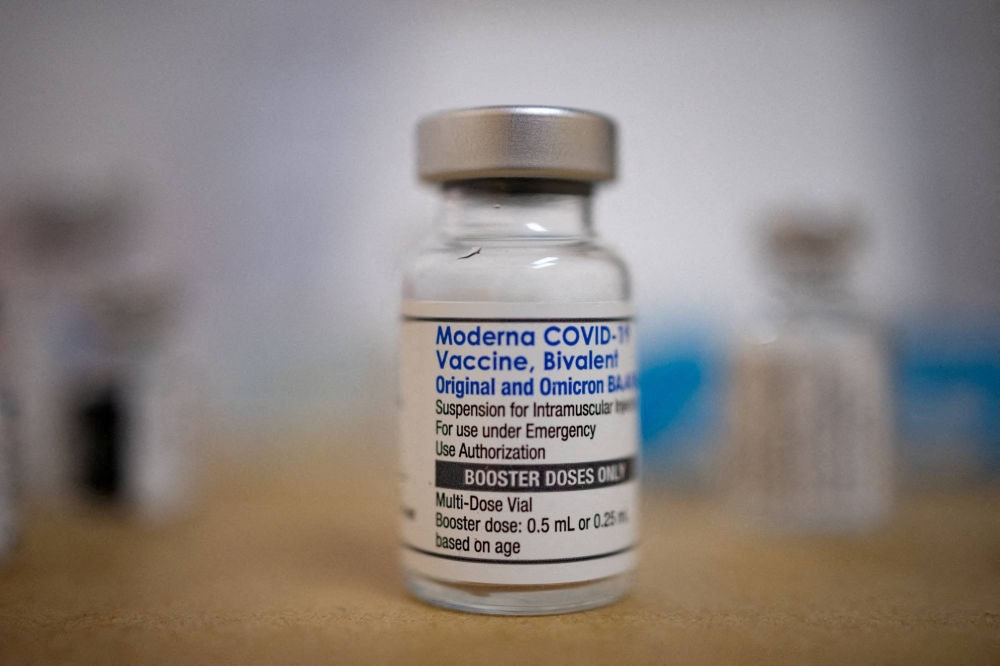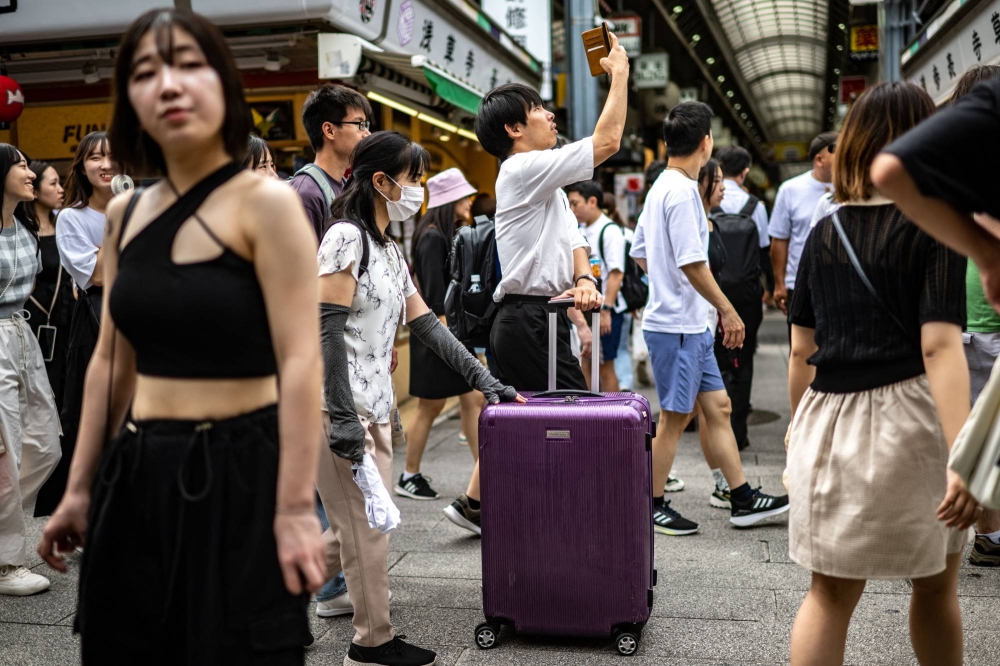A fresh COVID-19 inoculation drive is set to begin across Japan on Wednesday. The vaccine, which will be available to everyone for free, targets XBB.1.5 — a spinoff of the XBB variant, itself a "recombinant" virus of two prior omicron strains.
The free shots will be offered until March next year to prepare residents for an expected uptick in infections during the winter. But the health ministry is actively recommending the shot only to people age 65 and older and to those with underlying health conditions.
Here’s what you need to know about the fall-winter COVID-19 vaccination drive.
What is the purpose of the fall-winter drive?
The coronavirus has rapidly evolved during the pandemic. The omicron variant and its numerous sublineages are extremely good at escaping immunity acquired through past infection or vaccination. As with previous shots, health ministry officials say the main purpose of getting vaccinated is to prevent severe disease, not so much infection itself.
The health ministry told a recent vaccine policy committee meeting that, amid the current omicron outbreak, a COVID-19 shot is reported to help prevent infection or sickness from the disease for two to three months after inoculation, while offering some protection against severe disease for over a year. The ministry said a booster shot matched to the strain circulating at the time can provide additional protection against severe symptoms.
Who is eligible?
Everyone age 6 months old or over is eligible for the new vaccine. However, the government is actively promoting the shot only to those age 65 and older and to those with underlying health conditions, as the risk of developing severe symptoms through infection is higher for them than the rest of the population. Those who received a shot during the spring booster drive — available only to people over 65 and those at higher risk — can get one if three months have passed from their last shot.
Behind the change in the government’s stance is an updated recommendation from the World Health Organization released in March, which said it is no longer recommending additional COVID-19 boosters for regular and medium-risk adults, citing marginal benefits.
What type of vaccines will be used?
The government will use updated versions of vaccines designed to work against XBB.1.5. Pfizer and Moderna have recently received approvals from the health ministry for their mRNA vaccines, which are designed to work against this subvariant. XBB and its spinoffs are currently the predominant type of coronavirus in Japan and overseas.
Will the vaccine work against newer variants?
Both Pfizer and Moderna have said their XBB.1.5 vaccines have been found to increase neutralizing antibodies against EG.5 and BA.2.86 — both omicron offshoots. In the week through Sept. 10, EG.5, a mutated version of omicron subvariant XBB.1.9.2, was the most dominant strain in Japan and estimated to account for 57% of all cases, followed by various XBB subtypes. BA.2.86 initially concerned experts due to a high number of mutations in its amino acids, but its spread has been slow.
What are the known side effects?
As with previous shots, fatigue, pain in the area of the arm where the shot has been administered, and headaches are the most common side effects. Fever, muscle and joint pain have also been reported. There have been two deaths in which a causal relationship with vaccination could not be ruled out, including a 14-year-old girl who died from myopericarditis after receiving a Pfizer booster dose in August 2022. However, the government maintains that the benefits of the vaccine outweigh the risks.
Will municipal governments send everyone a coupon like before?
Some municipalities are staggering the timing for sending out coupons to residents, depending on when they got their last dose, and may not mail new coupons if they haven’t used ones sent during last year’s booster drive. Unused coupons can still be used. Those who have lost their coupons should contact their municipality. Residents in Shinagawa Ward in Tokyo, for example, can have a new coupon mailed to them by calling its COVID-19 vaccine hotline or via its website.
What happens after the current inoculation drive ends in March?
The government plans to end free COVID-19 shots at the end of March, given how omicron generally tends to cause lighter symptoms compared with the previously dominant delta variant and the fact that many people have a degree of immunity through past vaccination or infection. From next year, a COVID-19 shot will be available for a fee, like flu shots, most likely in the fall-winter season.






















With your current subscription plan you can comment on stories. However, before writing your first comment, please create a display name in the Profile section of your subscriber account page.